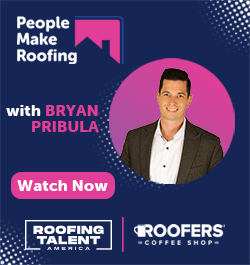Managing Your Commercial Building’s Budget Using Coatings

By Western Colloid.
Maintaining a commercial building requires planning, regular maintenance and good budgeting skills.
Owning a commercial building requires a large investment by the owner. Not just in purchasing a property, but also an investment in the care and maintenance of the building - especially its roof.
While wear and tear is a normal part of a building’s lifespan, a proactive inspection and maintenance program helps identify aging building materials and potential deficiencies. Without these kinds of programs, failing components of the building envelope can lead to water intrusion, mold growth and structural damage. When that happens, the commercial building’s budget goes, often quite literally, through the roof.
Plan Ahead
The best way to avoid costly repairs to a building is to plan ahead. If issues can be identified while they’re relatively minor, they can be addressed before they become larger structural or occupant health problems.
As part of a good inspection program, the overall condition of the roof system should be documented. Many warranties will have regular, documented inspections as part of their requirements.
Be sure to identify areas that are damaged or in need of repair, but also note areas where roofing materials are showing signs of aging. Work with the owner in support of their capital planning efforts, so they know how much money to set aside in future years for maintenance and ultimately for repair.
Choose the Right Roofing Solution
Roofs go through a lot. They’re constantly exposed to all the elements. From extreme cold to extreme heat, high winds, damaging hail and freeze-thaw cycles, roofing materials take a beating. A roof in good repair not only keeps out water but is also a key component in managing a building’s energy efficiency.
When damaged and aging roof materials are identified, it’s easy to go for an all-or-nothing approach. Some owners will choose the fastest and cheapest option to patch the obvious cracks, while others may prematurely choose to go with a large-scale replacement to avoid future hassles.
When roofing deficiencies are found, building owners should consider the following:
-
The total damaged area: Is damage localized to a single portion of the roof or are areas in need of repair throughout?
-
The extent of the damage: How deep does the damage go? Is it only the top membrane that is affected or has materials beneath, including insulation and structural supports, been impacted?
-
Past repair history: Has this area of the roof been repaired before? By whom? With what materials? How frequently?
-
The overall age of the roof: A newer roof may warrant more extensive repairs to help amortize the installation cost, while an old roof at the end of its lifespan may not be worth repairing.
-
Cause of damage: Is the cause known? Is it an ongoing issue due to poorly installed equipment or is it a more isolated event like a hail storm?
-
Other considerations: What other capital costs are they expecting to incur in the near future that will impact their ability to make large-scale repairs now? What other initiatives (such as improvements in building energy efficiency) could impact their decision on the type of roof repair they are ready to take on?
Once they have all this information, they’re in better shape to make a decision on the type of roof repair that will work best for them.
How Roof Coatings Can Help Manage a Commercial Building’s Budget
While localized and small-scale repairs can be done with patches and high-quality elastic cement, if the roof is so old or damaged a full tear-off and replace might be needed. This type of project can become very expensive, very quickly.
If structural damage has been identified beneath the roof, then a full tear-off and replace may be the only option, so that damaged areas cabn be reached and repaired. If the building is still structurally sound, you may be able to install a new roof system directly over the old one, to save on labor and cost.
A third option for the owner is to install a roof coating system over their existing roof. Roof coatings are an extremely cost-effective way of helping to manage capital repair budgets. The cost of raw materials is significantly less than a full new roof system, and coatings can be applied in a fraction of the time, further reducing labor costs.
Western Colloid’s acrylic and asphalt emulsion roof coating systems are compatible with many metal, single-ply and built-up roof systems. The can be applied directly over your existing roof system. They can be customized to fit the budget and long-term needs giving the owner permanent results.
Choosing a roof coating is a great way to extend the life of an aging roof. If the existing system is in relatively good repair, then roof coatings can enhance the system’s waterproofness and general resistance to the elements. Look for a roof coating that is FM4470 rated against hail damage for extra peace of mind.
How Roof Coatings Can Help a Budget for Years to Come
Along with reducing the cost of a new roof installation, roof coatings can help reduce a building’s cost of operations for years to come. With rising energy costs, building owners and operators are always looking for ways to save money on their utility bills. While many have already implemented energy-efficient windows, lighting and HVAC systems, the right roof coating can also help contribute to energy savings.
Cool roof coatings are a type of Fluid Applied Reinforced Roof (FARR) system that is finished with a white acrylic coating. They are shown to reduce building energy costs by as much as 30%.
How? Unlike traditional roofing materials, cool roof coatings come in a white finish. They are designed to reflect solar energy, rather than absorb it like other darker-colored coatings and systems. By not absorbing this energy on sunny days, cool roof coatings reduce the load on building HVAC systems, which reduces energy costs and prevents premature aging of building envelope materials.
Learn more about Western Colloid in their RCS directory.
Original article source: Western Colloid





















Comments
Leave a Reply
Have an account? Login to leave a comment!
Sign In